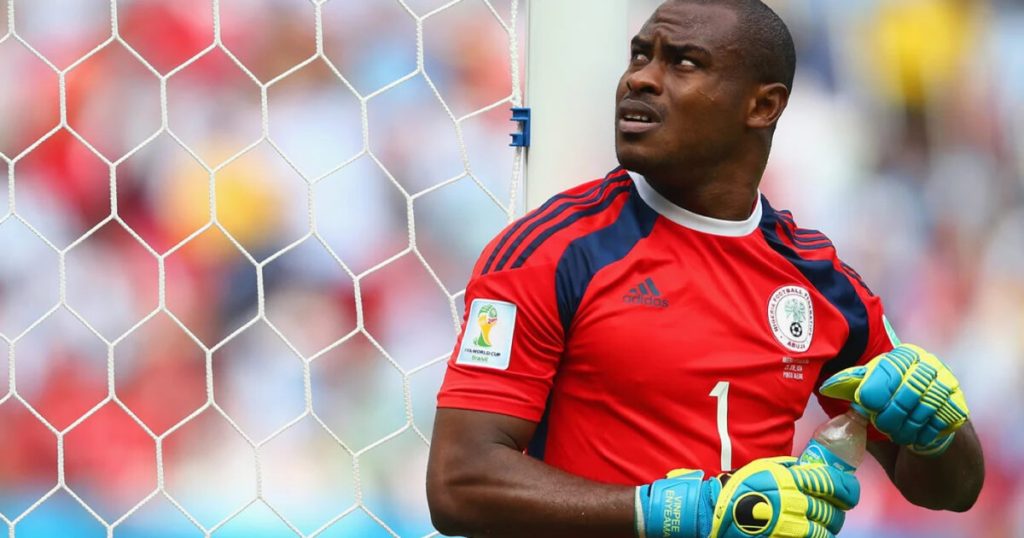Paragraph 1: Nigeria’s World Cup Qualification Hopes
Former Super Eagles goalkeeper and captain, Vincent Enyeama, has expressed unwavering confidence in Nigeria’s ability to qualify for the 2026 FIFA World Cup despite facing a challenging situation in the qualifying stages. Currently sitting fourth in Group C, Nigeria trails leaders South Africa by six points and is also behind Rwanda and Benin Republic. However, Enyeama, a veteran of three World Cups and a key figure in Nigeria’s 2013 Africa Cup of Nations triumph, firmly believes the Super Eagles possess the resilience and pedigree to overcome the odds and secure their place in the prestigious tournament. He draws on Nigeria’s history of surmounting difficult situations, expressing his conviction that the team will emerge stronger from this challenge and ultimately qualify.
Paragraph 2: Navigating the Qualification Path
Nigeria’s path to the 2026 World Cup is fraught with obstacles. The Super Eagles are currently in fourth place in their qualifying group, needing a strong finish to secure a top spot. They face crucial matches against group leaders South Africa, Rwanda, Lesotho, and Benin Republic in the coming months. Complicating matters further is the ongoing investigation into South Africa’s potential use of an ineligible player, which could result in a points deduction and reshape the group standings. Despite these hurdles, Enyeama’s belief in the Super Eagles remains unshaken. He points to the team’s innate ability to perform under pressure and expects them to deliver when it matters most.
Paragraph 3: Enyeama’s Call for Support of Ex-Players in Business
Beyond the realm of football, Enyeama, now a successful businessman himself, advocates for greater support for former players transitioning into entrepreneurship. Having retired from professional football in 2015 with a record 101 caps for Nigeria, Enyeama has since established himself as the chief executive of Vinpys Hotel in Uyo, employing nearly 100 staff. He emphasizes the importance of governmental and societal support for ex-players who venture into business, arguing that such support not only benefits the individuals but also contributes positively to the overall economy by creating jobs and generating revenue.
Paragraph 4: The Need for Patronage and Empowerment
Enyeama’s plea for support focuses on the need for patronage and empowerment rather than outright financial handouts. He calls upon government agencies and the Nigeria Football Federation to actively support ex-players’ businesses by utilizing their services and directing clients their way. He uses his own hotel as an example, highlighting the significant financial contribution it makes to the local economy through purchases and tax payments. He argues that consistent patronage of businesses owned by ex-players is crucial for their sustainability and long-term success.
Paragraph 5: Addressing the Financial Challenges Faced by Retired Footballers
Enyeama sheds light on the financial vulnerabilities that many retired footballers face, even those who enjoyed lucrative careers. He points out that without proper support structures and consistent patronage, even well-managed businesses can falter, leading to financial hardship and even poverty for former players. He emphasizes the importance of recognizing that even with wise investments, businesses cannot thrive in isolation and require ongoing support from the community and government to remain viable.
Paragraph 6: The Importance of Collective Support for a Sustainable Future
Enyeama concludes by stressing the importance of collective responsibility in supporting retired footballers and preventing them from falling into financial difficulties. He underscores that no one, regardless of their past achievements, can succeed alone and that societal support is crucial for ensuring a sustainable future for ex-players. He believes that by empowering retired footballers through patronage and support, Nigeria can create a system where these individuals can continue contributing positively to the economy and avoid the unfortunate cycle of financial hardship that often plagues retired athletes. He emphasizes that this support is not about charity but rather a strategic investment in individuals who have the potential to contribute significantly to national development.














